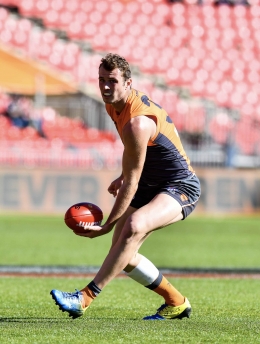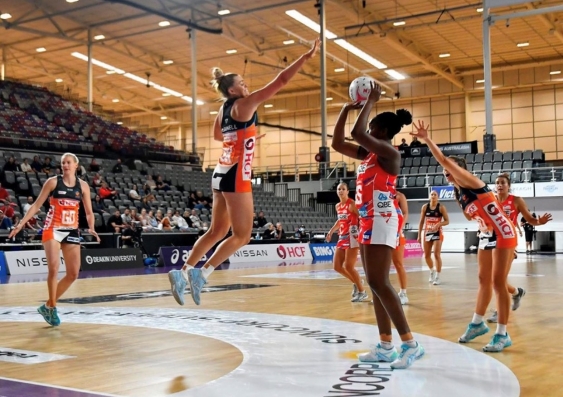When the COVID-19 pandemic forced state border closures throughout Australia, professional sports needed to adapt quickly to ensure their competitions could take place.
After delayed starts and mid-season hiatuses, the AFL, Super Netball, Super Rugby, NRL and recently concluded A-League have been able to navigate these significant challenges.
However, for a number of UNSW athletes, this has meant a quick move into ‘hub life’ – packing up and leaving their homes and families in Sydney to live in hotels with their teammates for the duration of their competitions.
While there are certainly team bonding benefits to being in this environment, there have been concerns raised about athlete wellbeing and the impacts of being away from home for extended periods, particularly for those who are studying.
Finding space to study
Giants Netball player and UNSW Law student Matilda McDonell has found it a challenge, but after a month in her Sunshine Coast hub, she has found her rhythm.
“It has definitely been hard but setting up a space for my laptop and books has been super helpful,” she said.
“I also try and designate a couple of hours to (studying); getting started is the hardest part.
“It also helps that I’m rooming with other girls who are at uni too”
Sydney Swans star and UNSW Business student Will Hayward has also found the ability to collaborate with other students helpful.

Kieren Briggs finds solo study most effective, while spending plenty of social time with his GWS Giants teammates in the hub. Photo: GWS Giants
“Doing a course with two other boys in James (Rowbottom) and Joel (Amartey) certainly helps as we can plan ahead and get a time where can all sit down together and get it done,” he said.
GWS Giants footballer and UNSW Construction Management student Kieren Briggs has found it easier to tackle his studies alone and take other opportunities to connect with his team.
“It’s just about setting aside blocks where you go back to your room or a quiet space to knuckle down on some work,” he said.
“The schedule can be unpredictable so being adaptable is key to be able to get some work done and be able to enjoy the company of teammates.”
Staying connected
While techniques to manage wellbeing vary between athletes, there is a common theme of staying connected to home and loved ones.
McDonell feels grateful to be based on the Sunshine Coast, where she can take in some beautiful scenery and enjoy the weather.
“I love swimming and being in nature and I also take some time to talk to my friends and boyfriend back home,” she said.
“It also helps that some of my best friends are in the team, so I don’t really get sick of them!”
Swans player James Rowbottom has found he needs time away from the team every so often to keep him focused on the season ahead.
“Staying connected to my girlfriend, family and friends back home is vital for me personally,” he said.
“Stepping away from the group at times to get a bit of alone time, as good an opportunity it is to hang out with everyone, some personal time is also required.
“I try to keep my routine similar to what it would have been at home normally.”
For UNSW Food Science student and sprinter Jessica Thornton, the experience has been a little different, as she is an individual athlete who has moved to train with her coach.
“It’s been less challenging for me as I don’t permanently live with teammates or coaches,” she said.
“However, what I’ve found really important is to make sure I’m eating healthy food and looking after my hygiene so that I don’t come down with anything.”
The challenges for Australian sport have been many and varied throughout this pandemic, shining a light on the need for athletes to be flexible and expect the unexpected.
UNSW’s Elite Athlete Program has been vital in ensuring that athletes are able to make a successful transition to retirement, by supporting them to balance sport and study and ensuring they are ready for whatever the future holds.



